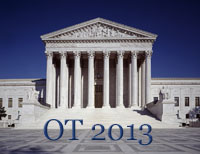Welcome to Our July Blogger
 Our July guest blogger with be rising 3L Joel Gracyk. Joel hails from Chaska, Minnesota, and is interested in constitutional law and legal writing. He is the incoming Editor in Chief of the Marquette Law Review.
Our July guest blogger with be rising 3L Joel Gracyk. Joel hails from Chaska, Minnesota, and is interested in constitutional law and legal writing. He is the incoming Editor in Chief of the Marquette Law Review.
And a belated thank-you for the excellent series of posts from our previous guests, Ric Gass ’70 and 2L Danielle Nardick!

